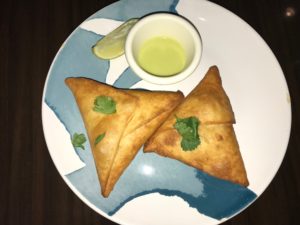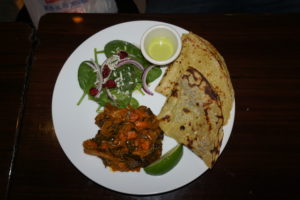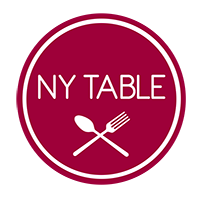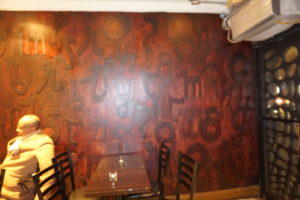Shakib Farah, 31, smiles as he gazes at the dinner crowd in his 10-year-old restaurant, Safari – the only Somali restaurant in New York City, located in Harlem. It’s one of his happiest moments. The success of the restaurant, the diverse crowd and his ability to represent the small Somali community are gratifying, even if it’s not enough to make him stay here.
“If the rent increases again we cannot do it,” Farah, 31, the owner and chef. He and his wife, Mona, who always works at Safari, say they’ve reached their limit for rent and are nervous about what will happen when their lease ends in 18 months.
They started out paying a monthly rent of $1000 in 2008, but their rent has gone up to $2500. Today, the median commercial rent in the area is $5400 per 100 square feet, according to the real estate company 42 Floors. Safari is roughly 400 square feet, which would mean that the rent could be as high as $21,600.
Empty commercial buildings fill gaps between the restaurants and stores, including five boarded-up stores leading up to Safari on 116th Street near Frederick Douglas Blvd.
The area is known as Petit Sénégal, where many African immigrants settled and started small businesses. Somali immigrants make up a very small portion of that group.
Community Survey estimates there are about 87,000 Somalis living in the US. The majority, over 57,000 people, live in Minnesota, with other large Somali communities in Ohio, Maine, Washington D.C., and Seattle.
During the 1990s, the Somalia civil war uprooted Farah and his family, and sent them on a 10-year refugee journey to the U.S., after stays in Kenya and Zambia. As Farah, his six brothers, two sisters and parents traveled, roughly 350,000 to 1,000,000 Somalis were killed in the conflict.
Farah and his family eventually settled in Baltimore in 2002, and came to New York City in 2005. This, he believed, was where he would find endless opportunities.
As the best English speaker in his family, Farah was in charge of communicating with Americans. And he knew how to cook, which helped him to find his calling in his twenties.
“In Somalia, the men are usually told not to be in the kitchen but, I was always watching my mother and sisters cook,” Farah said.
He studied business and found a business partner, Maymuuna Birjeeb, and they agreed: Despite, the immense amount of West African and East African restaurants in the city, the one thing missing was Somali food.
“You are going to want two for sure,” Mona says of their sambusa, a traditional Somali dish that shows the influence India and the Middle East had on the coastal country. The triangle-stuffed fried pastry is usually filled with beef or chicken, but Safari also offers a vegan option because Farah feels that people are trying to eat in healthier ways.

Sambusa, a traditional Somali dish of deep-fried pastry filled with vegetables and meats. Photo: Aisha Powell.
Their restaurant has not only funded their lives in America but has also helped them and their two children to live comfortably.
Farah and Mona serve a mix of regulars and new customers, who rave about what they see as a unique cuisine.
“It’s very different, like nothing you ever tasted before,” said Caitlyn Grange, who has had Somali food in Chicago and in Somalia. The goat with garlic is her favorite – or maybe it’s the Sabaayad, a chapatti bread filed with pickled vegetables and cilantro.

The “valentine,” Safari’s vegan valentine special meal of two crepes, a small salad and a vegetable stew. Photo: Aisha Powell.
Farah said newcomers like Grange are very common – but he worries that anti-African sentiments have increased in the US.
He keeps track of what he sees as anti-refugee policies and news about immigration and deportation, although he is a citizen himself. Somalia was the second country on President Donald Trump’s travel ban in 2017. And there’s pressure from another direction as well: As Harlem becomes more gentrified, Farah is not sure he can stay in business.
Farah holds onto the idea that Somalia will once again be a great place, like the home his elders described, and he is excited to return someday. He says it’s “an oasis of paradise.”
“In a way the Civil War is still ongoing,” said Keren Weitzberg, author of Do Not Have Borders: Greater Somalia and the Predicaments of Belonging in Kenya. The disruption after the Civil War has calmed down but has not ceased, she said, as Somali tries to rebuild itself and establish their government.
Abdinasir Museid a Somali environmental health specialist, or “an encyclopedia,” as Farah called him, began coming to Safari in January.
“He’s family” said the line cook as Musied stayed an hour past closing. Museid comes regularly to chat with other customers, read the newspaper and spew out Somali facts at any given moment.
Museid lived in Minnesota but moved to Harlem to start a business as a private consultant; reviewing and evaluating restaurants so they meet NYC food and safety standards. A self-described Yankee, he doesn’t plan on moving back to Somalia anytime soon. His new home is, Safari, where he can speak Somalian, eat authentic food and talk to people like Farah, who joins him for a cup of Shaax tea.


Your Comments